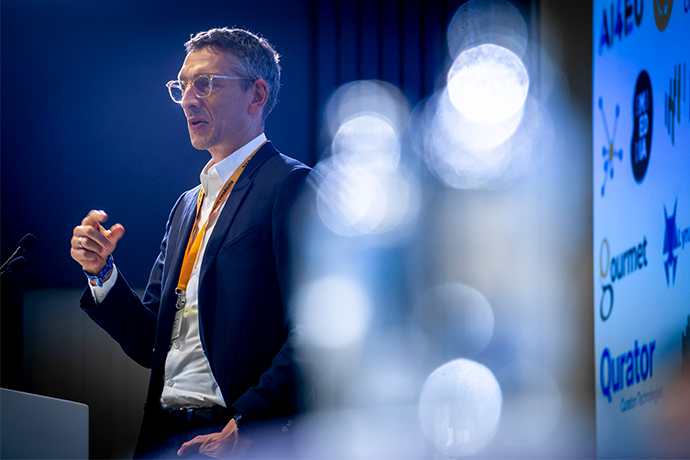
Prof. Dr. phil. Georg Rehm
Organizational unit
Speech and Language Technology

Publications
Profile
Short biography
Prof. Dr. Georg Rehm works as a Principal Researcher in the Speech and Language Technology Lab at the German Research Center for Artificial Intelligence (DFKI) in Berlin. He holds an M.A. in Computational Linguistics and Artificial Intelligence, Linguistics and Computer Science from the University of Osnabrück. After completing his PhD in Computational Linguistics at the University of Gießen, he worked as a postdoc at the University of Tübingen. After being responsible for the language technology teamat the award-winning startup vionto GmbH, he joined DFKI in early 2010.
Since 2013, Rehm has been the Head of the German/Austrian Chapter of the World Wide Web Consortium (W3C), hosted at DFKI in Berlin. Also related to ICT and standardisation, Prof. Rehm is a member of the DIN Presidential Committee FOCUS.ICT.In the 2021/2022 term, Georg Rehm serves as the Secretary of the EACL (European Chapter of the Association for Computational Linguistics).In October 2018, Prof. Rehm was awarded the honorary appointment as a DFKI Research Fellow for outstanding scientific achievements and special accomplishments in technology transfer. In April 2021, Georg Rehm was appointed honorary professor for outstanding achievements in research and education at Humboldt-Universität zu Berlin where he is affiliated with the Instituteforthe German Language and Linguistics. Prof. Rehm consults the European Parliament and collaborates with the European Commission as an external reviewer of EU projects.
Rehm has been coordinating various research projects in the area of computational linguistics and language technology, among others, CRACKER (EU, 2015-2017), DKT (BMBF, 2015-2017), QURATOR (BMBF, 2018-2022) and European Language Grid (EU, 2019-2022). Currently, Prof. Rehm is involved in the projects European Language Equality (EU, 2021-2022), SoNAR (DFG, 2019-2021), PANQURA (BMBF, 2021-2022), HumanE-AI-Net (EU, 2020-2023), SPEAKER (BMWi, 2020-2023), OpenGPT-X (BMWi, 2021-2024) and NFDI4DataScience (DFG, 2021-2026).
Prof. Rehm’s scientific contributions include more than 200 publications and more than 100 talks at scientific events, industry conferences, in the European Parliament and various national parliaments including the German one. Furthermore, Prof. Rehm has organised more than 30 scientific conferences and workshops.
LDS_SLT
A Common European Language Data Space CNECT/LUX/2022/OP/0026SciLake
The Scientific Knowledge Base reimaginedDatabri-X
Databri-XELE2
European Language Equality 2OpenGPT-X
Aufbau eines Gaia-X Knotens für große Kl- Sprachmodelle und innovative Sprachapplikations-Services; Teilvorhaben: Entwicklung von Sprachmodellen, Interoperabilitäts- und Nutzungskonzepten